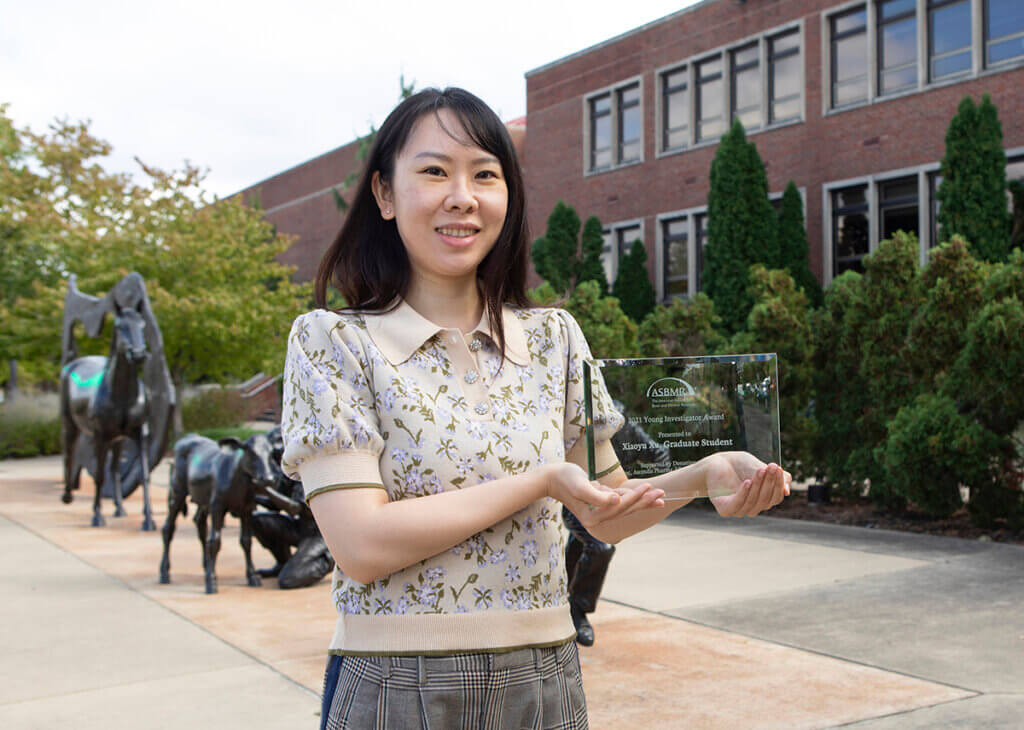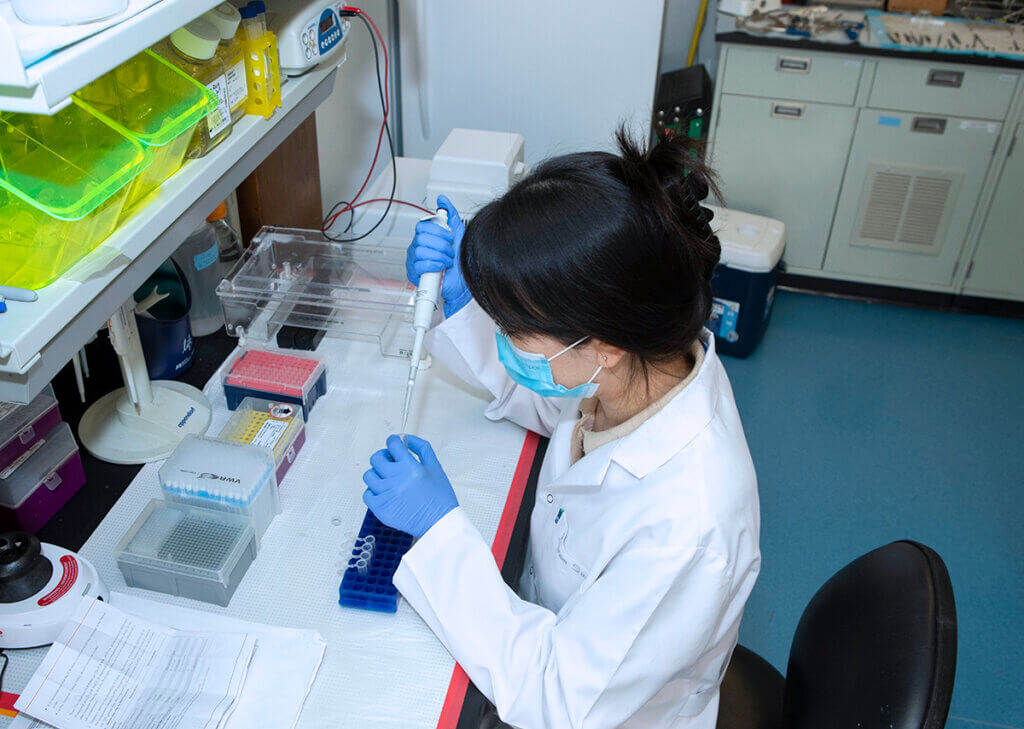
Graduate student Xiaoyu Xu has received a national award from the American Society for Bone and Mineral Research (ASBMR). Xiaoyu works in the laboratory of Dr. Russell Main, Purdue Veterinary Medicine associate professor of basic medical sciences, who also holds a joint appointment in the Purdue University Weldon School of Biomedical Engineering. The association recognized Xiaoyu with the Young Investigator Award at its 2021 Annual Conference for her presentation entitled, “Estrogen Receptor ß in Osteocytes (Ot-ERß) Exerts Sex- and Age-dependent Functions on Bone Turnover and Load-induced Skeletal Adaptive Response in Mice.”
The Young Investigator Award comes with a $1,000 honorarium and a personalized plaque commemorating the recognition. Additionally, Xiaoyu was invited to present her research poster in a pre-meeting workshop entitled “ASBMR 2021 Pre-Meeting Symposium: Biology of the Aging Skeleton – Implications for Fracture Prevention.”
Xiaoyu is a PhD candidate in the Weldon School of Biomedical Engineering, working on bone biology and biomechanics in Dr. Main’s laboratory. The award recognizes Xiaoyu’s research on the role of osteocyte estrogen receptor ERß in bone turnover and the skeletal response to mechanical stimuli. In particular, she is investigating the impact of sex hormones and mechanical loading in skeletal changes associated with age-related osteoporosis.

Xiaoyu explains that bone loss happens with aging, especially in women during or after menopause. “Age-related bone loss is recognized as a lack of osteoprotective metabolism caused by decreased serum estrogen levels and diminished skeletal responsiveness to mechanical stimuli,” Xiaoyu says. “Severe bone loss leads to osteoporosis that generates over two million skeletal fractures in the United States every year in people over 50.”
Xiaoyu notes that osteocytes are the primary bone cells responsible for maintaining bone metabolism in response to biochemical and mechanical stimulations. Her studies involving mice indicate that the estrogen receptor ERβ in osteocytes might mediate bone turnover initiated by estrogen and mechanical signals through different mechanisms in males and females, which might be coordinated with other sex hormones and receptors.
Xiaoyu earned her Bachelor of Science degree in biological sciences at Capital Normal University in Beijing, China, and her Master of Engineering in biomedical engineering at New York University (NYU). Before joining Dr. Main’s lab in 2016, she conducted a study on mechanical-induced cytoskeletal architectural adaptation in vascular smooth muscle cells in the NYU Biomechanism and Bioengineering Lab.
